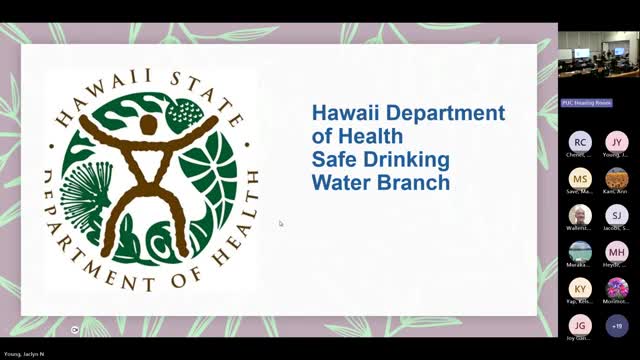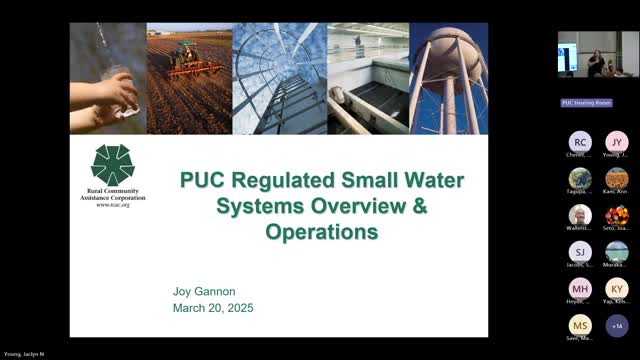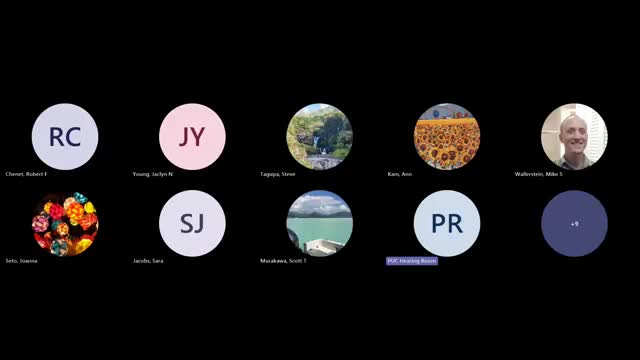Article not found
This article is no longer available. But don't worry—we've gathered other articles that discuss the same topic.

Safe Drinking Water Branch details monitoring, PFAS study, UIC concerns and emergency response support

PUC-regulated small water systems: operators, aging infrastructure, metering and cybersecurity emerge as top concerns

